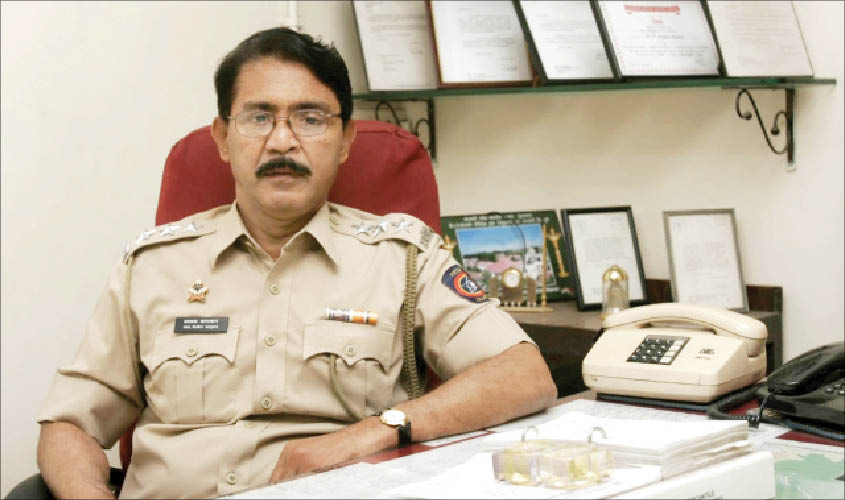Former Assistant Commissioner of Mumbai Police, Isaque Ibrahim Bagwan, who was part of the 26/11 counter-terror operations at Nariman House, speaks to Latha Srinivasan.
Having served in the Mumbai police force for over 35 years, the former Assistant Commissioner of Police, Isaque Ibrahim Bagwan, is someone whom many people are familiar with. During the 26/11 Mumbai attacks, he took charge of Nariman House and with his 12-member team, helped save the lives of more than 300 people. A three-time winner of the President’s Police Medal for Gallantry, Bagwan has achieved much in his remarkable career. His recent book, Me against the Mumbai Underworld, takes us through his encounters with the Mumbai underworld, with gun-toting terrorists and gangs, and charts his journey on the road to becoming a great cop. In this exclusive chat with Guardian 20, Bagwan talks about his life as a police officer in Mumbai and more.
Q. In your childhood, did you always want to grow up to be a police officer?
A. In my childhood days, India had recently become independent and everyone was brimming with patriotism. So was I. Yes, since childhood I wanted to join the armed forces, may be the military or the police force. I wanted do something good for my country, by fighting its enemies.
Q. Tell us about your first encounter with the Mumbai underworld?
A. By 1978-80, when I was posted at the Colaba Police Station, I had already faced and arrested many big criminals, like Hamid Aziz Dilip and Suhas Narayan Bhatkar alias Potya. (Potya was the rival of Manya Surve.) On 11 January 1982, PSI Tambat and I encountered the dreaded criminal Manya Surve, which was also recorded as the first encounter by Mumbai Police.
Q. You have witnessed some of the most gruesome attacks on Mumbai. How did they affect you as a person and as a policeman?
A. The 1993 Bombay bomb blasts made me realise how easily people could get brainwashed. For the first time I saw communal tension in the city at its highest.
I was made a part of a Special Squad to look into the terror attacks. My team and I arrested a fisherman from the Konkan region of Maharashtra. Then at one meeting, my DCP instructed us to bring down people of the minority community and put all of them behind bars. I was taken aback at how the whole community was being targeted for the actions of a few. I opted out of this special squad. After this incident, I concentrated on carrying on my duty without any bias. Not that I had anything against people of other religion or castes before the blasts. I have always considered myself as a part of this society and served all in the same way.
Then, during the 26 November terror attacks in Mumbai in 2008, I realised that no matter how scared you are of the challenge, you need to stand up and face such challenges head on. Only then can you overcome them. I am happy that I could help save the lives of over 300 citizens and that my team and I took the fight to the terrorists and didn’t let them escape Nariman House, for over 18 hours till the NSG commandos arrived. My patriotism and love for the country only grew after this incident.
Q. Did you ever fear for your life, given that you were up against the underworld?
A. No. Instead, I tried hard to instil fear of the law and of Mumbai Police in the goons and gangsters. I have always been willing to give everything for my duty.
Q. How did your family feel every time you stepped out of the house as a cop in those days?
A. Yes, my wife, Anjum, used to get quite stressed at times.
Q. How do you feel today, looking back at your illustrious life?
A. I’m quite happy with my police service and the appreciation I have received in the form of three police medals for gallantry by the President and other rewards.
Q. Despite the success you have had as a policeman and the awards you have won, do you have any regrets at all?
A. I regret having spent a few years in the side branches of the department. I was transferred to the side branches because of internal politics in the department.
Q. What advice would you give to those aspiring cops who want to be like you?
A. My advice would be: carry out your duty faithfully, with devotion and with sheer passion. Carry out the duty selflessly without expectations of any reward or award. Derive satisfaction out of helping people and serving the city

